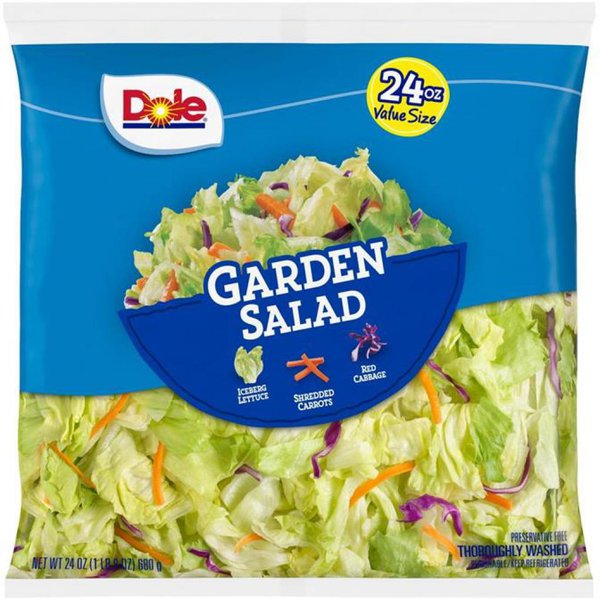Dole Fresh Vegetables Inc. has voluntarily recalled bags of salad sold in Pennsylvania and nine other states over a possible listeria contamination.
There have been no illnesses reported in connection with the recalled product, but a sample tested positive for the bacteria in a random inspection by the Georgia Department of Agriculture, according to a notice posted by the U.S. Food and Drug Administration.
- MORE HEALTH
- Lane Johnson shines a spotlight on anxiety disorders and the drugs used to treat them
- Take a stand against diabetic-related foot complications with these six steps
- FDA delays decision on Moderna's COVID-19 vaccine for adolescents
The recalled products are:
•24-ounce Dole Garden Salad with lot codes N28205A and N28205B and UPC code 0-71430-01136-2
•24-ounce Marketside Classic Salad with lot codes N28205A and N28205B and UPC code 6-81131-32895-1
•12-ounce Kroger Brand Garden Salad with lot codes N28211A and N28211B and UPC code 0-11110-91036-3
•12-ounce Salad Classics Garden Salad with lot codes N28211A and N28211B and UPC code 6-88267-18443-7
The other nine states impacted by the recall are Alabama, Florida, Georgia, Louisiana, Maryland, Massachusetts, North Carolina, South Carolina and Virginia.
The "best-if-used-by" date for the salads is expired, so any consumers who still have these products should throw them away. People with questions are advised to call Dole at 1-800-356-3111.
Listeria is a potentially serious infection typically caused by eating food contaminated with Listeria monocytogenes bacteria.
In most healthy people, it can lead to fever and diarrhea, similar to other foodborne illnesses. Other common symptoms include head and muscle aches, stiff neck, confusion, loss of balance, fever and convulsions.
However, if the bacteria spreads to other parts of the body, the symptoms can become more severe.
People most at risk for a serious infection are pregnant women and their newborns, young children, seniors and people with weakened immune systems.
According to the U.S. Centers for Disease Control and Prevention, invasive listeria in pregnant women can result in miscarriage, stillbirth, premature delivery or life-threatening infection of the newborn.


